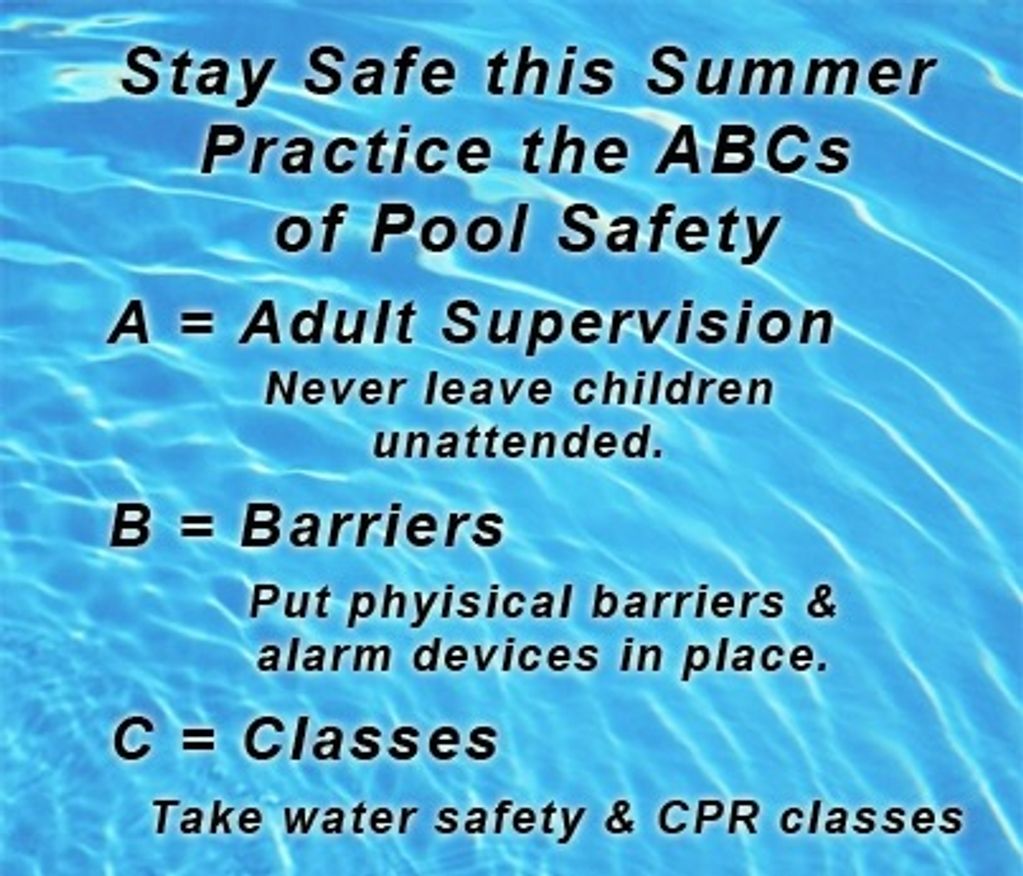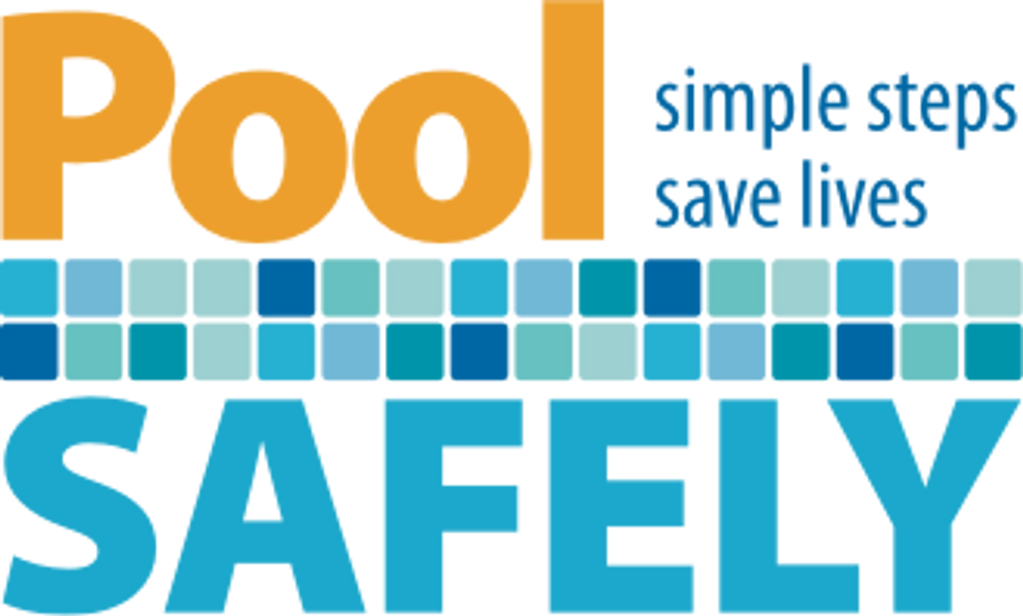Water safety 101
Any person can drown regardless of age, race, or swimming ability.
Drowning is a complex public health issue requiring a multifaceted approach using multiple prevention strategies.
Layers of protection are needed to help prevent accidents from happening
Lifeguards and water watchers are recommended.
Multiple barriers are required to prevent unauthorized access to unsupervised water.
Everyone should use entrapment prevention and anti-entrapment devices.
All teens and adults should learn CPR.
Swim lesson programs for children should also teach parents realistic
expectations of their children’s swimming ability.
No single prevention strategy can ever be relied on alone.
Alcohol and drug use should never be combined with water recreation.
If you have an above-ground or inflatable pool, remove access ladders and secure the safety cover whenever the pool is not in use.
Remove any structures that provide access to the pool, such as outdoor furniture, climbable trees, decorative walls and playground equipment.
Keep toys that are not in use away from the pool and out of sight. Toys can attract young children to the pool.

Know what to do in an Emergency. If a child is missing, check the water first.
Seconds count in preventing death or disability.
If you own a home pool or hot tub, have appropriate safety equipment, such as reaching or throwing equipment, a cell phone, life jackets and a first aid kit.
Know how and when to call 9-1-1 or the local emergency number.

When visiting an unfamiliar location with intentions of swimming such as a hotel or resort, a public pool, a friend’s house, the beach or any other area you plan to swim - know the address of your location- in case you have to call for emergency services.
maintain constant supervision
Additional Information
There is no substitute for active adult supervision whenever children are in, on, or around water.
Find age-appropriate swim lessons for your child, but keep in mind that lessons do not make your child "drown-proof"
Lifeguards are not babysitters; Always remember to keep your eyes on your child
Actively supervise kids whenever around the water—even if lifeguards are present.
Do not drop your kids off at a public pool or leave them at the beach. Always designate a responsible adult to supervise.
Always stay within arm’s reach of young children, and avoid distractions when supervising children around water.
No one should ever swim alone. There should always be at least 2 able-bodied adults in or near the water at all times.
Establish rules for your family and enforce them without fail. For example, set limits based on each person’s ability, do not let anyone play around drains and suction fittings, and do not allow swimmers to hyperventilate before swimming under water or have breath-holding contests. Never swim alone. Do not dive into unknown bodies of water. Do not push or jump on others. Be prepared for an emergency.
Even if you do not plan on swimming, be cautious around natural bodies of water including ocean shoreline, rivers, and lakes. Cold temperatures, currents, and underwater hazards can make a fall into these bodies of water dangerous.
If you go boating, wear a life jacket! Most boating fatalities occur from drowning.
Drowning is preventable
Early Learning Swim Academy currently offers infant and adult
swimming lessons in Cocoa, FL Rockledge, FL Viera, FL and Port Saint John, FL
Check out our baby swimming lessons facility.
Meet our baby swimming lesson instructors.

Before swimming, plug this information into your cellphone so you have it in the event of an emergency. When calling 9-1-1 from a cell phone, the dispatcher will have no clue where you are at. Thinking ahead saves time and possibly a life.
Also, before swimming, do a quick assessment of the pool area and its surroundings. Locate the pools main equipment shutoff in case of an entrapment incident.
Are the pool drains up to code per 15 U.S. Code § 8003 - Federal swimming pool and spa drain cover standard: https://www.law.cornell.edu/uscode/text/15/8003?
Where are the tripping hazards and can they be alleviated? How deep is the deepest part of the pool, is there a slide, water features such as a waterfall or wave pool where people are more prone to drown?
Keeping all this in mind before you enter the water is one way to be sure you and your family have a fun and safe time.
Early Learning Swim Academy
Early Learning Swim Academy - 5235 Vance Place - Cocoa, FL 32927US
Copyright © 2020 Early Learning Swim Academy - All Rights Reserved.
